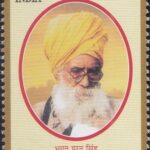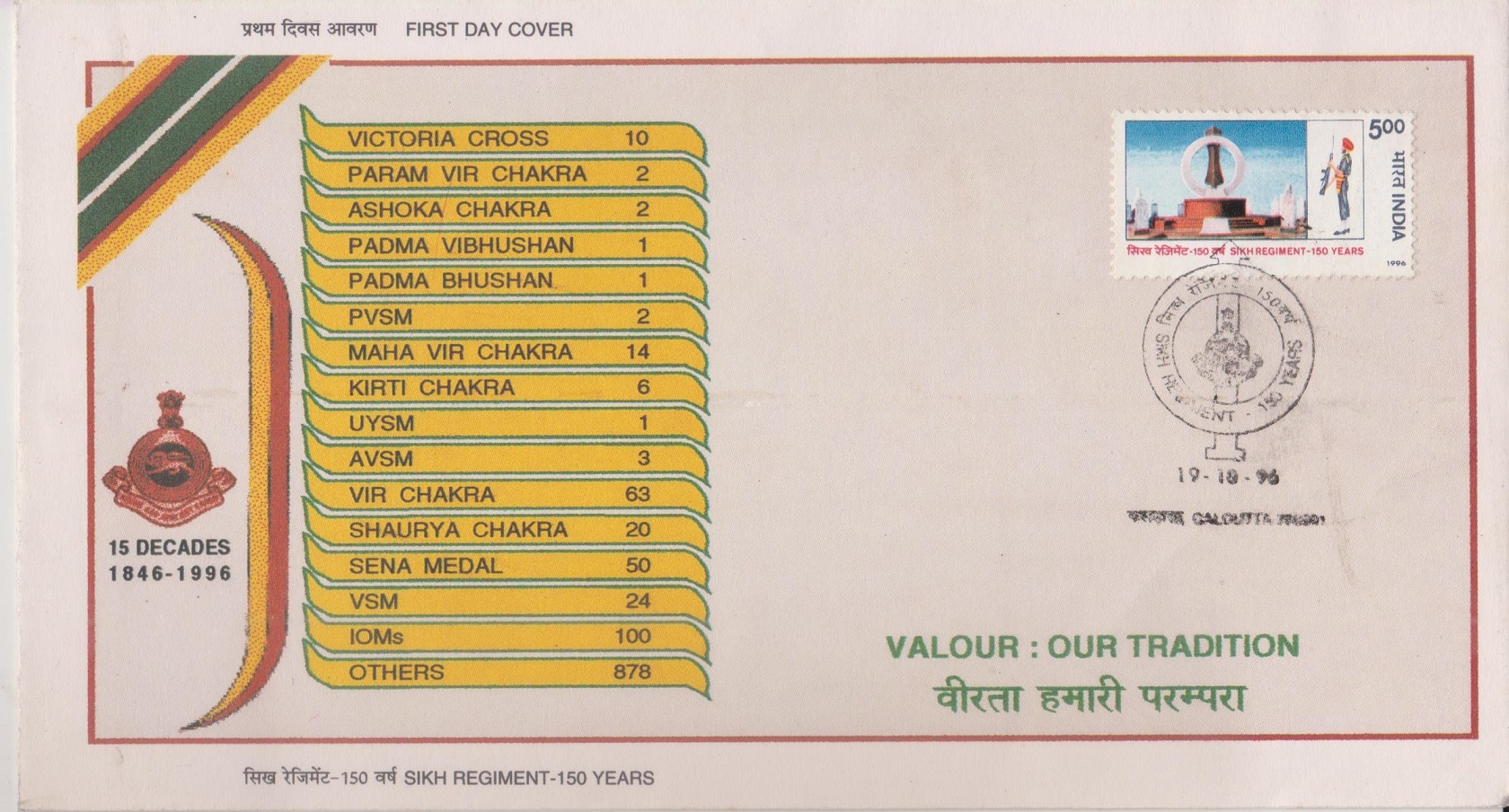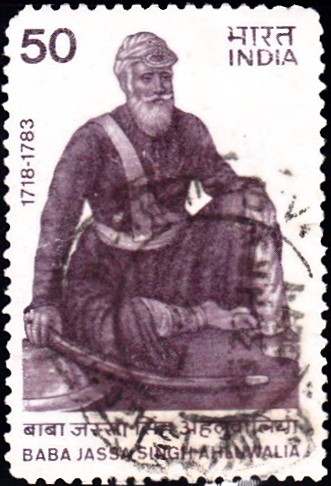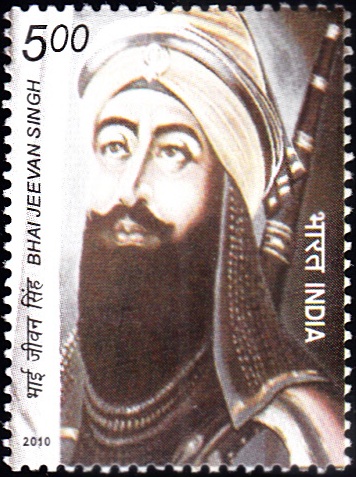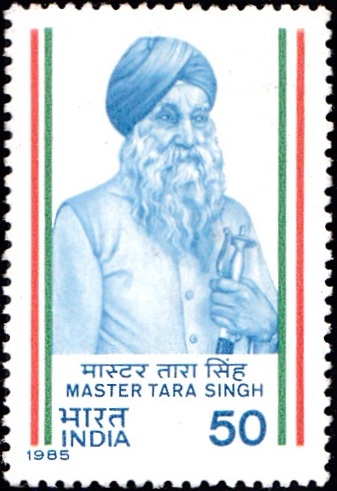
Master Tara Singh
A commemorative postage stamp on the Birth Centenary of Tara Singh, an Indian Sikh political and religious leader, instrumental in organising Shiromani Gurdwara Prabhandak Committee :
 Issued by India
Issued by India
Issued on Dec 23, 1985
Type : Stamp, Mint Condition
Colour : Single color
Denomination : 50 Paise
Perforation : 13 x 13
Stamps Printed : 1.5 Million in sheets of 40
Printer : India Security Press, Nasik
Name : Nanak Chand
Born on Jun 24, 1885 at Harial, Rawalpindi District, Punjab, British India [now in Pakistan]
Died on Nov 22, 1967 at Chandigarh, India
About :
- Master Tara Singh, a veteran Akali leader and freedom fighter, was a prominent figure in Sikh politics for more than forty years, was born on 24th June, 1885 in village Haryal, Teh. Gujarkhan, Distt. Rawalpindi, now in Pakistan. His earlier name was Nanak Chand. His father Bakshi Gopi Chand was a village patwari and belonged to a ‘Sehajdhari Sikh‘ (Hindu) family. He took Amrit from Sant Attar Singh at the age of sixteen, was renamed Tara Singh and became the first to convert to Sikhism in his family.
- His primary education was in the village school and later education in mission school, Rawalpindi. He graduated from Khalsa College, Amritsar. He captained his college Hockey and Football teams and was known as a ‘Pathar‘ (rocklike). Once the Commander-in-Chief of the Royal Indian Army impressed by his game, offered him a direct commission which he refused as he wanted to be an educationist.
- After getting his teacher’s training from Govt. Training College, Lahore, he started his career as the Headmaster of Khalsa High School, Layalpur, drawing Rs. 15 per month from his pay of Rs 150 and the rest he donated to the school funds. As a student, Master Tara Singh made up his mind to remain poor, and devote his life to the service of his people. Money and position had no allurement for him at any time and his dedication to the Khalsa Panth was unconditional. He was basically a religious man but circumstances involved him in active political life. His truthfulness, honesty, integrity and purity of character always remained above board.
- He actively participated in the Sikh Gurdwara Reforms Movement from its very inception, but after the Nankana Sahib tragedy in 1921 wherein more than 200 Sikhs were killed, he left his teaching profession and became a whole time public worker. He was the first General Secretary of the Shiromani Gurdwara Parbandhak Committee and later its President for various terms.
Subscribe
Login
0 Comments
Oldest


